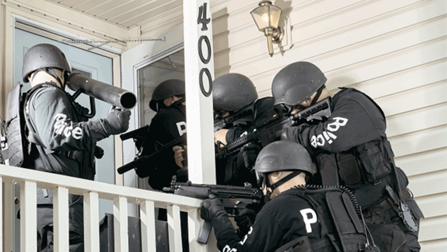War on Drugs Reaches Home Front

Studies have shown that underaged alcohol and drug abuse is occurring with more and more frequency.
Parents are left with the difficult task of trying to prevent their child from abusing drugs. In an environment where your child is more likely to go to rehab than he is to get a dog bite, there are some definite precautions that you have to take.
The first of these is that knowing that children typically take drugs when they’re trying to solve a problem in life or are suffering from something. By staying in communication with your child, you can detect when these things are happening. They might be having trouble with someone in school, a teacher, or one of their friends, and you can tell. There are definite warning signs before a kid abuses drugs. Maybe his grades drop to some degree. Maybe he tries to spend time away from home, spending the night at friends’ houses repeatedly. These are not necessarily signs that he is abusing drugs, but they are signs that he might not be doing well and therefore is susceptible to using.
By taking effective steps to help him deal with his problems, you will also be taking effective steps to prevent drug use.
Being Nosy
If a parent has a hunch that something is not quite right, they are right about 99% of the time. That’s because parents generally have good instincts about their children and have enough interactions to be aware of changes of patterns of behavior in the child’s life. You aren’t doing your child a disservice by being nosy, by needing to find out where they are, by checking in on them now and then.
We would argue that it isn’t a matter of trust—of whether or not you trust your child. It’s a matter of whether or not you fully trust the other children they’re hanging out with.
The kids that are using your drugs in your child’s school spread a lot of false information about drugs—information pushed on them by the drug dealers themselves. They’ll tell these lies to your child. They’ll try to get your child to use drugs. Depending on the circumstances, he might. Not because he’s a bad kid or because he doesn’t have any regard for your thoughts on the matter; It’s just because he might make a mistake as a result of the pressure that he’s given from his “friends.”
Do a Drug Test
If you feel like there’s a good chance your child has used drugs—either because you learn that his friends had drugs or because you discovered drugs—do a drug test. By the way, if you find drugs on your child’s person, in his room or in his book sack, don’t even bother doing a drug test. He’s used drugs, regardless of whatever excuse he comes up with. But if you feel suspicious of your child, do the test. If he says, “Don’t you trust me?” tell him that you do trust him and this test will help you trust him even more.
And make sure that you’re in the bathroom with him when you give the test, because it can very easily to be faked. The purpose of the test is to be certain about whether or not he’s been using drugs, and you won’t be able to be certain about it if you’re not in there making sure it is taken correctly.
Once you know for sure that your child is using drugs, it’s time to consider drug rehabilitation.
If your child knows that he might be randomly drug tested, it will be a powerful deterrent to him. The other thing is that it gives him a cop-out. In a lot of circumstances, a child doesn’t really want to use but needs a way to escape the pressure from his peers. If he can say, “Dude, my mom drug tested me last week,” then that’s the ultimate cop-out for his friends. They’ll back off from pressuring him to smoke that joint or do those drugs if he can say that.
If you need help with your teen, call our Riverbend Retreat’s hotline. We have been helping teens with our drug rehab facilities for years.